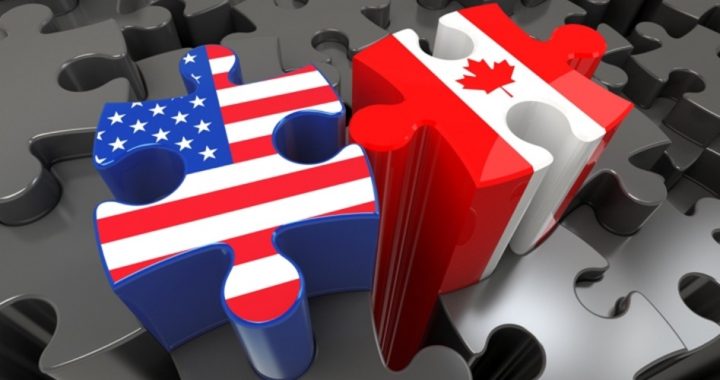
Canada’s dairy industry and stance on Chapter 19 dispute settlement system may be spoiling the milk for President Trump’s new NAFTA.
On September 11, 2018, Reuters reported that according to two unnamed Canadian sources who are close to the NAFTA renegotiations, Canada was ready to grant the United States limited access to its dairy market.
The access would be similar to that which Canada offered to other countries in its free trade agreement with the European Union, the Comprehensive Economic and Trade Agreement (CETA), as well as in the Trans-Pacific Partnership.
In the case of CETA, the then-ruling Conservative Party government of Prime Minister Harper Stephen Harper agreed to grant the EU limited access to Canada’s dairy market, mainly in the area of cheese.
CETA’s tariff rate quotas, the EU is allowed to import an additional 16,000 tons of high-quality cheese and 1,700 tons of industrial cheese into Canada.
This angered Canada’s power dairy lobby, which in part contributed to Conservative Party losses and the end of the Harper government, giving rise to the current Liberal Party government of Prime Minister Justin Trudeau.
Trudeau has repeatedly stated that he would only sign a new NAFTA deal that was good for Canada. However, as news broke of Canada’s possible dairy concessions to the U.S., Canadian farmers have begun to speak out in opposition to any concessions.
“We’ve taken those hits for team Canada, and we are determined that there be no further concessions on dairy. We have hit a wall on this where enough is enough,” said David Wiens, vice president of Dairy Farmers of Canada, according to the Ottawa Citizen.
The Citizen further reported that Wiens declined to comment on what action the Dairy Farmers of Canada would take “if an updated NAFTA deal gave the U.S. a greater chunk of the Canadian market, but did not rule out campaigning against ratification of the agreement, or the Liberal government.”
On Wednesday, Canadian Foreign Minister Chrystia Freeland said that Canadian officials had more work to do before they could hold fresh talks with the U.S. on renegotiating NAFTA.
“We decided that in order to have another productive conversation, it would be best to give our officials some time to hold technical discussions,” Freeland said without giving any further details.
Although, when asked if the renegotiations had reached an impasse, Freeland replied, “Absolutely not.”
As prospects of Canada reaching an agreement with the U.S. soon seem grim for the moment, it is a distinct possibility that Freeland’s recent announcement about more work needed to be done may have to do with the pushback from the Canada’s farm and dairy lobby.
In order to satisfy both domestic consumer demand and dairy farmers, the Canadian government has been employing a socialist command economy model for domestic dairy production for the last 50 years.
Canada doesn’t only use tariffs to protect its domestic dairy industry; the government also subsidizes dairy products and regulates their supply to keep up with demand.
The Canadian government sets both the price and production level of milk and other dairy products. Supporters of the socialist model argue that it provides consumers with predictable prices.
And that model as well as the predictable government set prices could be at jeopardy with the government lowers or eliminates its tariffs on milk and dairy imports, as the U.S. wants it to agree to in a new NAFTA deal.
The political cost of making any dairy concessions to the U.S. may be higher than what Trudeau and his Liberal Party are willing to pay. If Trump succeeds in acquiring such concessions from Canada, it would be a huge win for American milk and dairy farmers, whom are eager to sell their products in Canada.
However, another area of contention remains regarding the Chapter 19 settlement dispute system. This too Trump wants to do away with, rightly noting how it undermines American sovereignty by superseding U.S. courts.
In the case of the dubbed United States-Mexico Trade Agreement that was agreed to last month, the U.S. and Mexico instead reportedly agreed to scale back the international dispute system, limiting the tribunals to only certain industries.
It remains to be seen how and when the U.S. and Canada will resolve these issues. However one thing remains clear — regardless of any possible win for American milk and dairy farmers in accessing the Canadian market or the possibility of limiting NAFTA’s international dispute mechanisms, any agreement that keeps the current trilateral framework and supranational structures toward a united North America (i.e. North American Union) would be a major loss for the United States’ long-term national sovereignty.
The best deal for America is to still engage in commerce with Canada and Mexico, with the U.S. Congress regulating such trade and tariffs as per Article I, Section 8 of the Constitution, and without the creation of supranational or transnational bodies. If Canada or Mexico has any disputes with an American company, then it should take to matter to an American court rather than international tribunal.
Americans should recoil at the thought of any NAFTA that not only trades away American jobs and industries, but also its national defense and sovereignty. This is why NAFTA is bad and likely any successor currently being renegotiated.
Photo: klenger/iStock/Getty Images Plus





